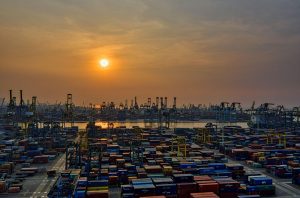Monitoring the Growth and Impact of Low Carbon Freight Systems
Author: Glenn Liza Varghese
In the latest findings of the ICLEI ExoLogistics study of understanding the importance of low carbon freight systems for sustainable development of cities, three main countries were studied, mainly Argentina, Columbia, and India.
In recent times, the freight system has been on an increase which has led to the emission of carbon levels in the air. Only a few countries have taken the initiative to recognize that freight transportation is similar to normal transportation.

The findings of the study have brought few main points that every country has to look forward to in the future to establish sustainable development. They are:
Due to the increase in freight transportation, air quality and carbon emission have to be monitored.
It is observed that there has been a shift in climate due to air pollution and various other forms of pollution. Therefore, countries need to look forward to reducing air pollution and carbon emission through alternative methods.
The emergence of low carbon fuels and vehicles.
Many companies have started moving towards the production of vehicles that work on electricity and even carbon-less fuels. This has been seen as a positive change in terms of the sustainable development of cities. Countries like Argentina and Columbia have taken initiatives to implement policies that foster the production of biofuels.
The capacity of infrastructure is left unnoticed.
The construction of infrastructure is an important part of the systematic services of freight. Kochi port, located south of India, is one of the largest ports that cater to the freight system and had a reported growth rate of 9% in cargo handling in 2018 and 2019. But due to frequent strikes, the impact has been negative as there is a delay in building quality roads and infrastructures.
Systematic and efficient infrastructure is one of the reasons to boost the economy as major companies can invest in things such as urban rail and dockyards.
It is urgent to update the urban freight data which will be the base for further studies.
Every country takes national data of freight systems but there is a need to ensure that data is collected to an urban extent. Even though it is an expensive aspect and there aren’t many resources in certain countries, there is greater evidence that schemes and policies can pave the way for the development of freight systems in a sustainable model.
There is a need to have a regulatory body to manage and develop freight systems.
With all the changes making way now, countries need to make sure that there is a regulatory board to ensure there is proper management of freights which in turn will help the countries to plan schemes and policies to create sustainable impact.
Thus, with the help of such studies, countries can monitor the growth and impact of low carbon freight systems for sustainable living.
Picture credit: Fort Kochi by Martin Damboldt, Pexels
City of Rosario, Argentina by Tom Fisk
Reference: ICLEI














Add Comment